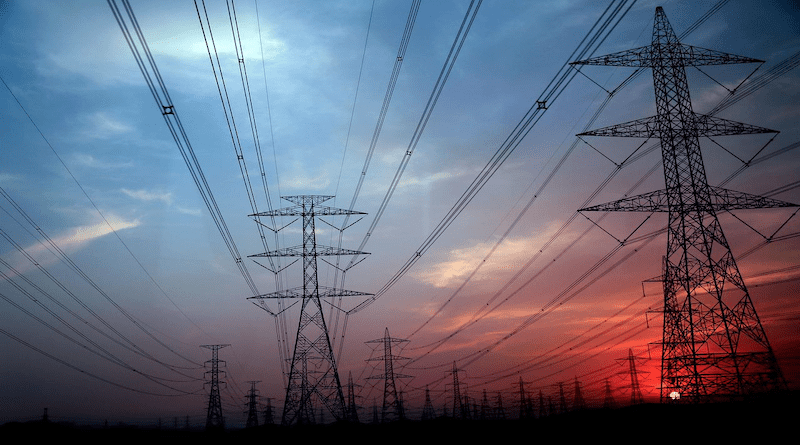Power Firms Warn Of ‘Unprecedented’ Liquidity Crisis In Europe
By EurActiv
By Frédéric Simon
The electricity sector is facing a “perfect storm”, with sky-high gas prices hitting the margins of European power companies at a time when more than €100 billion in investments are needed annually to drive the green transition, the industry says.
Skyrocketing gas prices are not only harming the purchasing power of households, they are also putting electricity firms under an “unprecedented liquidity strain,” which is triggering “extreme so-called margin calls,” said Kristian Ruby, secretary general of Eurelectric, the EU power industry association.
“If you have a factor of 10 increase in the price, then you all of a sudden have a huge array of requirements for liquidity to cover your collateral. And it’s not something you can escape,” he told EURACTIV.
Utilities sell most of their power years in advance to guarantee a certain price, in an arrangement which requires them to deposit a “minimum margin” into an account as a safety net in case they default before the power is produced and actually enters the market.
A margin call happens if the funds in the account fall below the minimum margin requirement for a trade, forcing the company to secure it with more cash.
Electricity prices on the wholesale market surged by 532% between January 2021 and August 2022 because of falling gas supplies, according to Eurelectric’s Power Barometer, unveiled on Wednesday (7 September).
“And that’s triggering a proportionate increase in the need for collateral,” Ruby said.
He declined to put a figure on how much collateral this represents, saying the businesses concerned prefer keeping those numbers confidential. But according to Norwegian energy major Equinor, the amount of capital needed to cover those trades would reach at least $1.5 trillion.
Another indicator is the amount of liquidity in forward markets, which has dropped by 40%, Ruby said. “And what does that mean? It means that these enormous collaterals are scaring investors away. Nobody has the capacity to deal with these enormous collateral requirements.”
Lack of liquidity is not only a problem for energy firms – it also risks derailing the EU’s green transition, which hinges on the rapid electrification of end-uses such as transport and heating.
To meet the EU’s decarbonisation objectives, annual investment in new clean power generation capacity will have to reach €98 billion between 2030-2050, Eurelectric said. And another €34-39 billion will be needed in new power distribution grids, it added.
“For this reason, it is essential to support investor confidence via a reliable, business-friendly investment framework,” Eurelectric argued, urging governments to “stop and think before pursuing market interventions that undermine investor confidence”.
A Lehman Brothers moment?
The liquidity crunch has already hit some major European electricity firms, which have been pushed to bankruptcy.
Over the weekend, Finland and Sweden announced plans to offer billions of euros in liquidity guarantees to power companies buckling under the strain of rising gas prices.
“This has had the ingredients for a kind of a Lehman Brothers of energy industry,” Finnish Economic Affairs Minister Mika Lintila said, referring to the collapse of the US investment bank, which triggered the global financial crisis in 2008.
Other European companies that had to be bailed out because of liquidity issues include Germany’s Uniper and Austria’s Wien Energie while in the UK, the Bank of England will make £40bn available for struggling energy firms.
On Friday, EU energy ministers will convene in Brussels to discuss options to rein in soaring energy prices, including gas price caps and emergency credit lines for energy market participants.
Options under consideration include measures to increase market liquidity such as “immediate credit line support” for struggling energy firms, “for instance through the role of the European Central Bank” or a “temporary suspension of European power derivatives markets,” according to a paper circulated by the Czech EU presidency.
In Brussels, the European Commission said it was acutely aware of the need for collateral in the power sector.
“And that calls for helping companies to stabilise this,” a senior European Commission official told a press briefing on Wednesday.
In March, the European Commission amended its temporary state aid crisis rules, allowing national governments more leeway to support companies impacted by the Ukraine war.
“There is a specific provision for the provision of liquidity support, which so far was only specifying the possibility for loans and we will extend it with a procedure for guarantees,” the official said. “We will make that even more easy by amending the temporary framework.”
Fortum, a Finnish energy firm which is itself facing liquidity issues, said in a policy recommendation paper that their focus now was to get changes to the EU’s European market infrastructure regulation (EMIR) adopted ten years ago.
“Whilst the EMIR legislation was enacted in the aftermath of the Lehman Brother collapse with the objective to avoid any similar financial crisis to occur, quite ironically the high restrictions laid down in the Regulation pose severe risks to energy commodity derivative trading with the threat of another form of default payment,” Fortum said in the paper.

